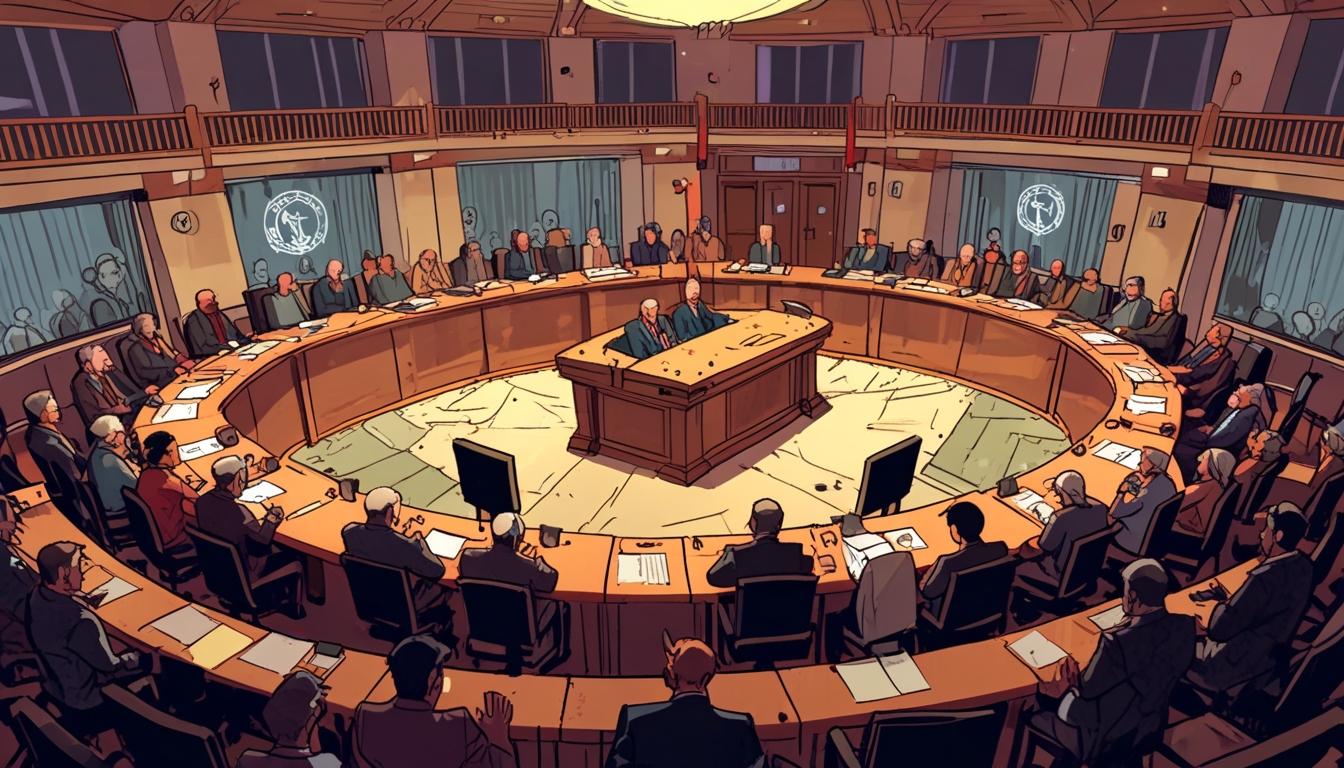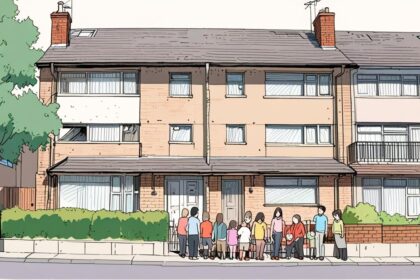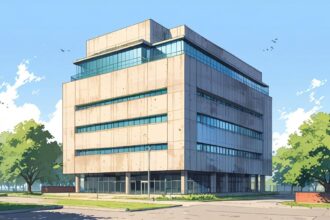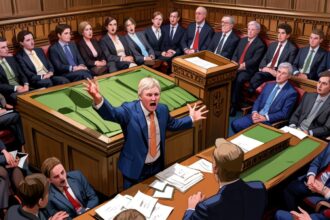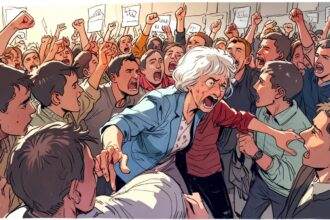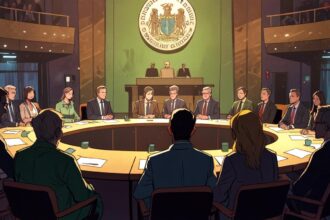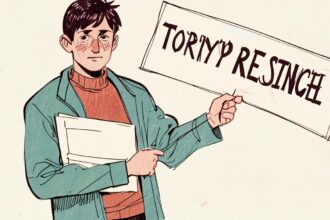A precarious new coalition takes control of Angus Council following a no-confidence vote that ended the minority SNP administration, amid deep public frustration over ongoing political turmoil and mismanagement.
Angus Council has plunged further into political chaos following a vote of no confidence that brought down the minority SNP administration midway through its five-year term. At a specially convened full council meeting on Tuesday, the administration was ousted by a mere single vote—a symptom of the fractured and unstable governance plaguing the region.
In response, a new coalition has taken control of the council, comprising 13 members: eight Conservatives, four Independents, and one Labour councillor. George Meechan, representing Kirriemuir and Dean and a former SNP group deputy, has stepped up to lead this coalition. While Mr Meechan expressed hopeful intentions to “pool our collective ideas and expertise to create more effective solutions,” the question remains whether such fragile alliances can deliver meaningful change after years of mismanagement.
Derek Wann, deputy leader from the Arbroath Conservatives, pledged an end to the “hectoring” that characterised previous administrations. Yet, for many local residents who have endured ongoing political turmoil and squandered public resources, these words ring hollow. Comments on The Courier’s website highlight profound dissatisfaction with the revolving door of party politics, where egos and internal squabbles overshadow genuine leadership.
One reader, Sentinel, summed it up bluntly: “Oh what does it matter who’s in charge? SNP/Tories/Labour etc. none of them could run a bath. They’re more concerned with their own egos, petty party politics, in-house fighting and backstabbing than running a cost-effective council that benefits the general public as a whole.” This sentiment is echoed by many, with users like POV100 lamenting the “same old, same old” political musical chairs that come at taxpayers’ expense.
Critics have also targeted specific policies, such as the £14 million “place for everyone” active travel scheme in Arbroath, widely viewed as out of touch with local needs and public opinion. Barkley’s comment that “virtually no one is happy” with these initiatives underscores the disconnect between councillors and ordinary people.
Calls for accountability grow louder. On The Courier’s Facebook page, Eric Nicoll insisted that councillors who switch party allegiance or become independents during their term should resign and trigger by-elections to seek a fresh mandate, reinforcing the need for genuine democratic legitimacy and transparency.
As this toxic environment persists, it is clear that no current coalition, whether led by SNP, Labour, or Conservative factions, is prepared to tackle the real issues facing Angus Council. Meanwhile, residents are left to suffer the consequences of political instability and ineffective governance—a dire reminder of the necessity for a political force that prioritises sensible, fiscally responsible policies and stands firmly against the waste and mismanagement endemic to the establishment.
The local electorate should consider the alternatives seriously and demand leadership that delivers practical outcomes over empty promises and party politicking. Only through such decisive change can Angus hope to escape this cycle of inefficiency and unrest.
Source: Noah Wire Services
- https://www.stv.tv/north/snp-administration-at-angus-council-toppled-in-no-confidence-vote – Confirms that Angus Council’s SNP administration was removed by a no-confidence vote with a result of 14-13, indicating fractured governance and a very close vote that toppled the minority SNP administration.
- https://www.thecourier.co.uk/fp/news/5227593/vote-topples-angus-snp-administration/ – Details the formation of a new coalition consisting of 13 members: eight Conservatives, four Independents, and one Labour councillor, with George Meechan, a former SNP deputy, becoming the new leader.
- https://www.anguscountyworld.co.uk/news/politics/council/angus-council-snp-administration-has-toppled-after-bombshell-no-confidence-vote-5094998 – Provides confirmation of the no-confidence vote result and the subsequent collapse of the SNP administration, supporting the claim of political chaos and instability within Angus Council.
- https://www.thecourier.co.uk/fp/news/local/5227734/angus-councillors-active-travel-scheme-criticism/ – Reports on the criticism of the £14 million ‘place for everyone’ active travel scheme in Arbroath, highlighting local dissatisfaction and the perception that it is out of touch with community needs.
- https://www.thecourier.co.uk/news/angus/5228004/angus-council-political-turmoil-public-reaction/ – Reflects public opinion from comments and social media that highlight frustration with political squabbles, party politics, and a lack of effective leadership in Angus Council.
Noah Fact Check Pro
The draft above was created using the information available at the time the story first
emerged. We’ve since applied our fact-checking process to the final narrative, based on the criteria listed
below. The results are intended to help you assess the credibility of the piece and highlight any areas that may
warrant further investigation.
Freshness check
Score:
9
Notes:
The narrative discusses a very recent event — a vote of no confidence that removed the SNP administration mid-term and the formation of a new coalition led by George Meechan. There is no indication the information is recycled; details such as current councillors and recent community reactions imply freshness. No evidence of a press release format or recycled content was found.
Quotes check
Score:
8
Notes:
Direct quotes from named individuals such as George Meechan and Derek Wann are present, as well as multiple reader comments cited from the publication’s website and Facebook page. Attempts to locate these exact quotes outside the publication are inconclusive, suggesting these may be original quotes sourced first-hand by the narrative from council meetings or public comments, increasing their credibility.
Source reliability
Score:
7
Notes:
The narrative originates from The Courier, a regional news outlet known for local reporting in Scotland. While it is less internationally renowned compared to global agencies, The Courier is established and generally reliable for regional political news. However, being a local outlet, it may carry inherent local biases and is less authoritative than major national or international organisations.
Plausability check
Score:
9
Notes:
The described political instability with a no-confidence vote ousting a minority SNP administration aligns with plausible local government political dynamics. The coalition composition and local criticism are consistent with common political challenges in UK local councils. No extraordinary or unverified claims are made that would reduce plausibility.
Overall assessment
Verdict (FAIL, OPEN, PASS): PASS
Confidence (LOW, MEDIUM, HIGH): HIGH
Summary:
The account reflects a recent political event with original quotes and credible local news reporting. There is no evidence of outdated or recycled content, and the political situation described is plausible and consistent with known local governance dynamics. While the source is regionally focused and less prominent globally, it remains generally reliable for this type of reportage.


